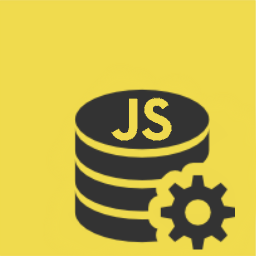Redis adapter for js-data.
npm install --save js-data js-data-redis redis.
var JSData = require('js-data');
var DSRedisAdapter = require('js-data-redis');
var store = new JSData.DS();
var adapter = new DSRedisAdapter({
host: 'my.domain.com',
port: 3333
});
store.registerAdapter('redis', adapter, { default: true });
// "store" will now use the Redis adapter for all async operationsRead about using JSData on the Server.
- Slack Channel - Better than IRC!
- Announcements
- Mailing List - Ask your questions!
- Issues - Found a bug? Feature request? Submit an issue!
- GitHub - View the source code for js-data.
- Contributing Guide
First, support is handled via the Slack Channel and the Mailing List. Ask your questions there.
When submitting issues on GitHub, please include as much detail as possible to make debugging quick and easy.
- good - Your versions of js-data, js-data-redis, etc., relevant console logs/error, code examples that revealed the issue
- better - A plnkr, fiddle, or bin that demonstrates the issue
- best - A Pull Request that fixes the issue, including test coverage for the issue and the fix
- Contribute to the issue/discussion that is the reason you'll be developing in the first place
- Fork js-data-redis
git clone git@github.com:<you>/js-data-redis.gitcd js-data-redis; npm install;- Write your code, including relevant documentation and tests
- Run
npm test(build and test)
- You need io.js or Node 4.x that includes generator support without a flag
- Your code will be linted and checked for formatting, the tests will be run
- The
dist/folder & files will be generated, do NOT commitdist/*! They will be committed when a release is cut. - Submit your PR and we'll review!
- Thanks!
Here's how to make a release on the master branch:
- Bump
package.jsonto the appropriate version. npm testmust succeed.- This time, the built
dist/js-data-redis.jsfile will be committed, so stage its changes. - Mention the release version in the commit message, e.g.
Stable Version 1.2.3 - Push to master.
- Create a git tag. Name it the version of the release, e.g.
1.2.3
- Easiest way is to just create a GitHub Release, which will create the tag for you. Name the Release and the git tag the same thing.
git fetch originif you tagged it via GitHub Release, so you can get the tag on your local machine.npm publish .(Make sure you got the version bumped correctly!)
The MIT License (MIT)
Copyright (c) 2014-2015 Jason Dobry
Permission is hereby granted, free of charge, to any person obtaining a copy of this software and associated documentation files (the "Software"), to deal in the Software without restriction, including without limitation the rights to use, copy, modify, merge, publish, distribute, sublicense, and/or sell copies of the Software, and to permit persons to whom the Software is furnished to do so, subject to the following conditions:
The above copyright notice and this permission notice shall be included in all copies or substantial portions of the Software.
THE SOFTWARE IS PROVIDED "AS IS", WITHOUT WARRANTY OF ANY KIND, EXPRESS OR IMPLIED, INCLUDING BUT NOT LIMITED TO THE WARRANTIES OF MERCHANTABILITY, FITNESS FOR A PARTICULAR PURPOSE AND NONINFRINGEMENT. IN NO EVENT SHALL THE AUTHORS OR COPYRIGHT HOLDERS BE LIABLE FOR ANY CLAIM, DAMAGES OR OTHER LIABILITY, WHETHER IN AN ACTION OF CONTRACT, TORT OR OTHERWISE, ARISING FROM, OUT OF OR IN CONNECTION WITH THE SOFTWARE OR THE USE OR OTHER DEALINGS IN THE SOFTWARE.





